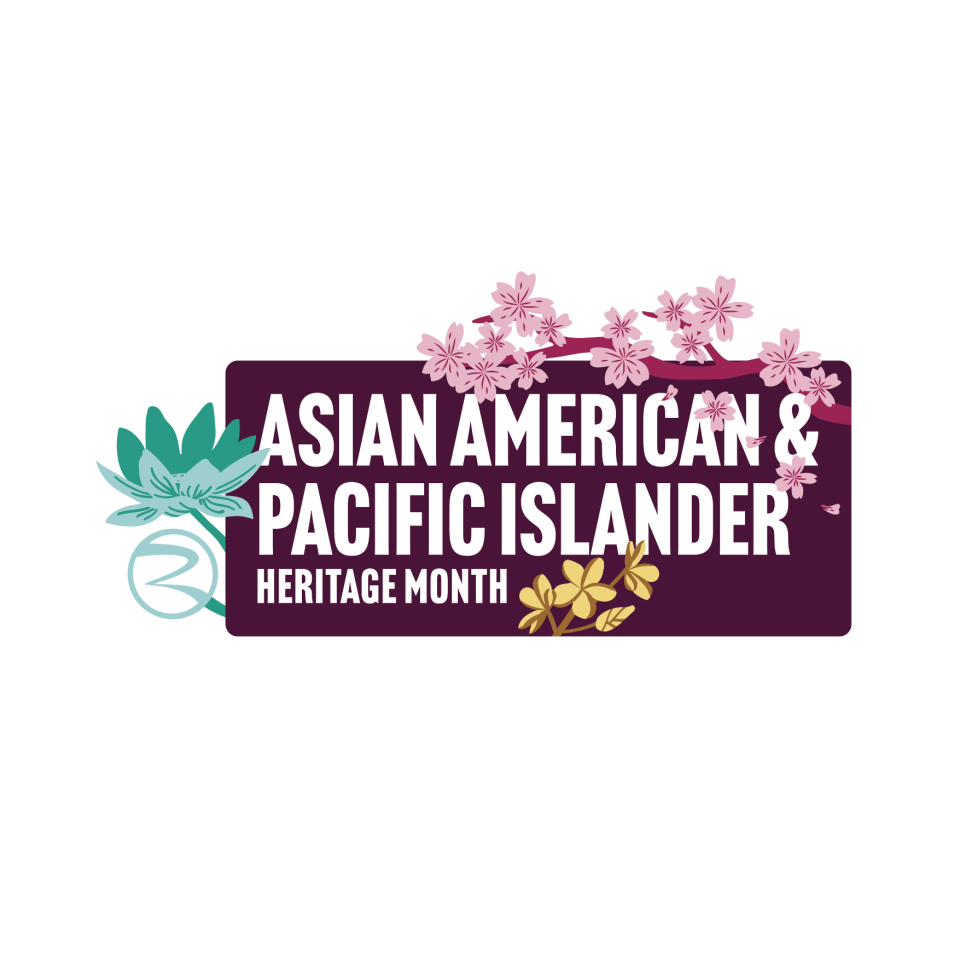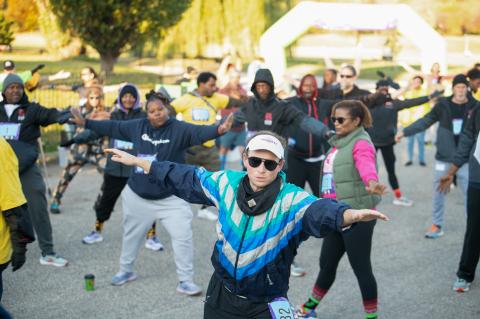
Asian American, Pacific Islander, and Native Hawaiian Heritage Month
May is Asian American, Pacific Islander, and Native Hawaiian Heritage Month, a time to celebrate and honor the diverse cultures, histories, and contributions of these communities. This year’s theme, “A Seat at the Table,” highlights the cultural significance of uniting and advocating for ongoing societal equity and inclusion.
Explore some ways to celebrate Asian American, Pacific Islander, and Native Hawaiian Heritage Month below.
Celebrate all of Asia and the Pacific Islands
In 2000, the U.S. Census Bureau recognized Asians and Pacific Islanders as separate racial categories. As race is a social construct, it is important to understand how militarization and colonization profoundly shape these distinctions.
Who may identify as Pacific Islander?
One may identify if they have origins in*
|
|
Who may identify as Asian?
One may identify if they have origins in*
|
|
*These lists are not exclusive. The provided examples offer geographic place markers.
**Currently, the U.S. Census Bureau includes the Middle East in the White race category though some regions are considered part of Asia.
A Note on SymbolsImage credit: The California Natural Resources Agency. The logo’s flowers honor the diversity of Asian and Pacific Islander cultures across the U.S. Explore their site for more information on the symbolism of Lotus flowers, Cherry blossoms, and Plumerias across Asia and the Pacific Islands. |
Health Equity in Asian American and Pacific Islander Communities
In the 2020 U.S. Census 24 million individuals identified as Asian and 1.6 identified as Native Hawaiian or other Pacific Islander
Within this diverse group, health disparities exist:
- Compared to other ethnic backgrounds, Asian Americans are amongst the least likely to engage in mental health care for mental illness at only 20.8%.
- The leading cause of death in AAPI communities is Cancer—especially of the stomach and liver
- Health Screenings and preventative health seeking behaviors are lower among AAPI individuals compared to non-Hispanic White individuals
- Rates of tuberculosis and Hepatitis B are 30 times higher in AAPI individuals compared to non-Hispanic White individuals
Understanding barriers to care may help us better engage Asian American and Pacific Islanders in care to eliminate these disparities
Common barriers to AAPI engagement in healthcare:
|
|
What you can do to help close the gap:
- Use language translation services to assure clients’ equitable access to care
- Assess a client’s health literacy level and provide them with resources and recommendations in a way they can comprehend
- Conduct targeted outreach
- Build relationships with local AAPI organizations to engage potential clients and provide culturally relevant resources
- Conduct a cultural formulation interview to better understand clients' culture and beliefs
- Educate yourself! Learn about the rich cultural diversity within Asian and Pacific Islander communities
- Challenge your own biases
- Understand that the model minority myth is just that—a myth, with a real and harmful impact if left unchallenged
- Embrace eastern medicine practices like Traditional Chinese Medicine as a complementary therapy to traditional western medicine practices
West Isn't Always Best: Eastern Medicine Traditions
When you hear the word “medicine”, it is likely that you visualize hospitals, pharmacies, stethoscopes, and scrubs; this would be an accurate representation of the western practice of medicine. But western medicine is not the only way the citizens of our world engage in health care. Civilizations all across the globe have been practicing traditional methods of healing for centuries.
Eastern Medicine, for example, has been a practice in Asia for over 2,000 years. More specifically, Traditional Chinese Medicine (TCM), has been around since 200 BCE. Eastern medicine practices and TCM are traditional ways to diagnose, treat, and prevent illnesses. Pacific Islanders also have traditional health practices to prevent illness and promote wellness. Each of these practices share a central goal: balance. Achieving and maintaining balance in the body through managing three areas: external/environmental factors, lifestyle habits, and internal emotions to balance the body, mind, and spirit is central to many of these traditional modes of keeping healthy.
Take a look below at some forms of traditional eastern medicine and wellness practices—you may be more familiar with them than you think!
|
|
|
For more information on AAPI Health, visit these resources below!
Asian American Pacific Islander Health Forum
National Alliance on Mental Illness (NAMI) AAPI
American Medical Association AAPI Health Equity Report
Upcoming Asian Americans, Pacific Islanders, and Native Hawaiian Heritage Month Events in 2023:
More Recent News
At our annual staff holiday party, we take time to recognize and celebrate staff members who best represent our Core Values, as well as one recipient of the Von Bradshaw Award, named after Delvonia "Von" Bradshaw, who passed away in 2024 and truly held the principles of Health Care for the Homeless to heart. Please congratulate your colleagues when you see them!
Those of us in the Health Care for the Homeless community share a belief in something powerful: that everyone should have a place to call home.
Hope for that vision isn’t passive. It’s something that clients, staff and community supporters make possible together.
With SNAP benefits in Maryland facing uncertainty, many families are wondering how they’ll put food on the table. Here are ways Health Care for the Homeless is helping, as well as a list of local food assistance resources.
On Saturday, November 1, more than 300 runners, walkers, friends and volunteers gathered in Patterson Park for the 2025 Rock Your Socks 5K. Read all about this year's awesome event!




